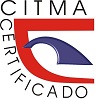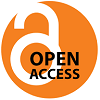The legacy of defectologist Ángel Luis Gómez Cardoso to education in Cuba
The legacy of defectologist Ángel Luis Gómez Cardoso to education in Cuba
Keywords:
Systematization, Special education, diversity, educational inclusionAbstract
Studies related to the systematization of the contributions of representative figures in the teaching profession in the country and their significance in professional training were biased due to insufficient theoretical research, which generated the need to delve deeper into the history of Cuban teaching, with an emphasis on ethical and pedagogical foundations. The objective of this article is to propose a theoretical systematization of the legacy of the prominent Camagüeyan educator Dr. C. Ángel Luis Gómez Cardoso to special education in Cuba, and thereby recognize his pedagogical work and legacy. The historical-logical method, documentary analysis, was used with a qualitative research approach: the life history approach was applied, where contributions to special education are explored in depth through pedagogical content analysis.Contributions were evident in the social, cultural, pedagogical, psychological, and philosophical spheres, as well as the causal relationships between different periods and contexts of the pedagogical processes that benefited from their contributions. A comprehensive understanding of pedagogical work increased the effectiveness of pedagogy, particularly which of Camagüey, enriched the knowledge of current pedagogy, and opened the field of research by identifying trends, connections, and patterns in the current context.
Downloads
References
Aguiar, G., Demothenes Y., y Campos I. (2020). La participación familiar en la inclusión socioeducativa de los educandos con necesidades educativas especiales. Mendive Revista de Educación, 18(1), 120-133. Recuperado de http://scielo.sld.cu/scielo.php?script=sci_arttext&pid=S1815-76962020000100120&lng=es&tlng=es
Alarcón, Y. (2020). Orientación a las familias del niño de cero a dos años de vida y necesidad educativa sensorial de tipo auditiva. [Tesis de doctorado inédita]. Universidad de Camagüey “Ignacio Agramonte Loynaz. Camagüey.
Alba, C. (2018). Diseño Universal para el Aprendizaje un modelo didáctico para proporcionar oportunidades de aprender a todos los estudiantes. Padres y Maestros/ Journal of Parents and teachers, 374, 21-27. Recuperado de https://doi.org/10.14422/pym.i374.y2018.003
Chávez, J., y Deler, G. (2013). Antología del pensamiento educacional de la Revolución cubana. La Habana, Cuba. Sello Editor Educación Cubana.
Fornaris, M., y Huepp Ramos, F.L. (2022). Análisis histórico del proceso de formación del logopeda en Cuba. Universidad Y Sociedad, 14(55), 87-97. Recuperado de https://rus.ucf.edu.cu/index.php/rus/article/view/3274
Gómez de Melo, N. J., Gómez de Souza, V., y Guerra, A. de L. e R. (2023). Do analfabetismo á exceléncia académica: o legado educacional de Cuba. Revista Académica Online, 9(46), e1061. Recuperado de https://www.revistasacademicaonline.com/index.php/rao/article/view/1061
Guanche, S. (2021). Algunos aportes de los pedagogos cubanos a la teoría de la enseñanza problémica. Anales de la ACC, 11(2) Epub 01 de agosto de 2021. Recuperado de http://scielo.sld.cu/scielo.php?scrip=sct_arttex&pid=s2304-01062021000200010&ing=es&ting=es
Jiménez, R., y Verdecia, E. (2020). La educación cubana desde un prisma renovador. Revista Estudios del Desarrollo Social: Cuba y América Latina, 8(1), Epub. Recuperado de http://scielo.sld.cu/scielo.php?script=sci_artext&pid=s2308-01322020000100007&ing=es&ting=es
Ledesma, M. A. (2014). Análisis de la teoría de Vygotsky para la reconstrucción de la inteligencia social. La Cuenca, Ecuador: Editorial Universitaria Católica Edúnica. ISBN: 978-9942-9860-9-2. Recuperado de https://gredos.usal.es/handle/10366/127738
López Márquez, N. G. (2017). Funcionalidad familiar y participación escolar de las familias de niños con discapacidad. IE Revista de investigación educativa de la REDIECH, 8(14), 111-128. Recuperado de http://www.scielo.org.mx/scielo.php?script=sci_arttext&pid=S2448-85502017000100111&lng=es&tlng=es
Murguía, M., Hernández, T., Hernández, T. B., y Carrera, M. A. (2020). Rol del maestro en la inclusión educativa de los alumnos con trastornos de la comunicación oral. Propósitos Y Representaciones, 8(SPE3), E730. Recuperado de https://doi.org/10.20511/pyr2020.v8nSPE3.370
Rojas, A. L., Padilla, S A., y Domínguez, Y. (2024). La orientación familiar como práctica inclusiva desde la formación del docente de Educación Inicial. Conrado, 20(98), 150-155. Recuperado de http://scielo.sld.cu/scielo.php?script=sci_arttext&pid=S1990-86442024000300150&lng=es&tlng=es
St`Rose, C.M., Guedán, I., Alarcón,Y. (2023). Estrategia educativa para la inclusión familiar en el proceso orientación profesional hacia las ciencias básicas. Revista Ciencias Pedagógicas, 17(1), 75-93. Recuperado de https://wwwcienciaspedagógicas.rimed.cu/index.php/ICCP/article/view/472
Vila, E.S., Rascón, T., y Calderón, I. (2024). Discapacidad, estigma y sufrimiento en las escuelas. Narrativas emergentes por el derecho a la educación inclusiva. Educación XX1, 27(1), 353-371. https://doi.org/10.5944/educxx1.36753
Published
How to Cite
Issue
Section
License
Copyright (c) 2025 Martha Elena Báez García, Clay Pérez Jiménez, Olga Lidia Núñez Rodríguez

This work is licensed under a Creative Commons Attribution-NonCommercial 4.0 International License.
Horizonte Pedagógico is an Open Access journal, meaning that all its content is freely accessible at no charge to the reader or their institution. Users are authorized to read, download, copy, distribute, print, search, or link to the full texts of articles in this journal without prior permission from the publisher or author, in accordance with the BOAI definition of open access. Authors who publish in this journal agree to the following terms: Authors retain copyright and grant the journal the right of first publication. The journal is protected under a Creative Commons Attribution 4.0 International License (CC BY-NC 4.0), which permits others to share (copy and redistribute the material in any medium or format) and adapt (remix, transform, and build upon the material) for any purpose, even commercially. Under the following conditions: attribution (you must give appropriate credit, provide a link to the license, and indicate if changes were made) and non-commercial — You may not use the material for commercial purposes. You may do so in any reasonable manner, but not in any way that suggests that the journal or the publishing author endorses you or your use.






















